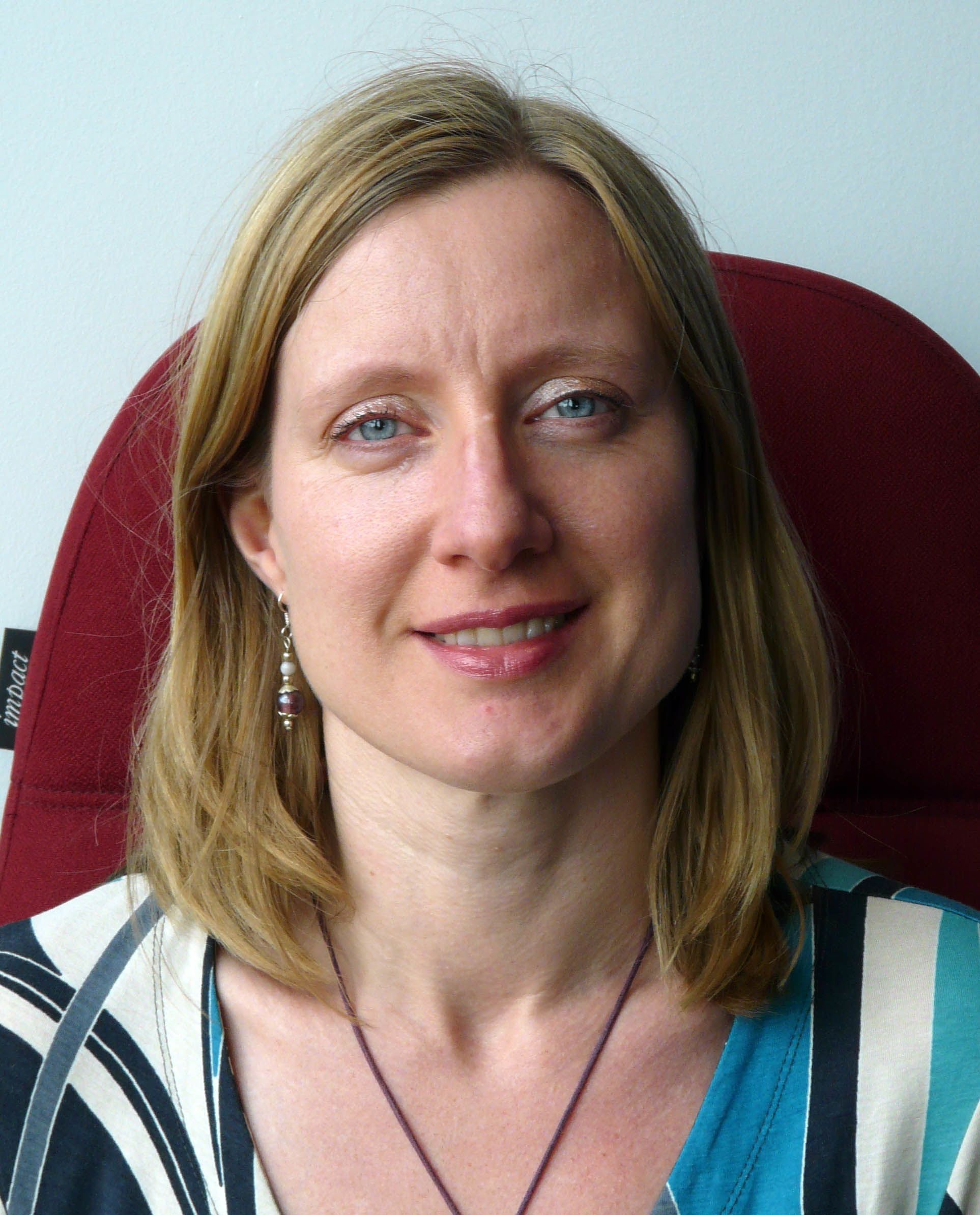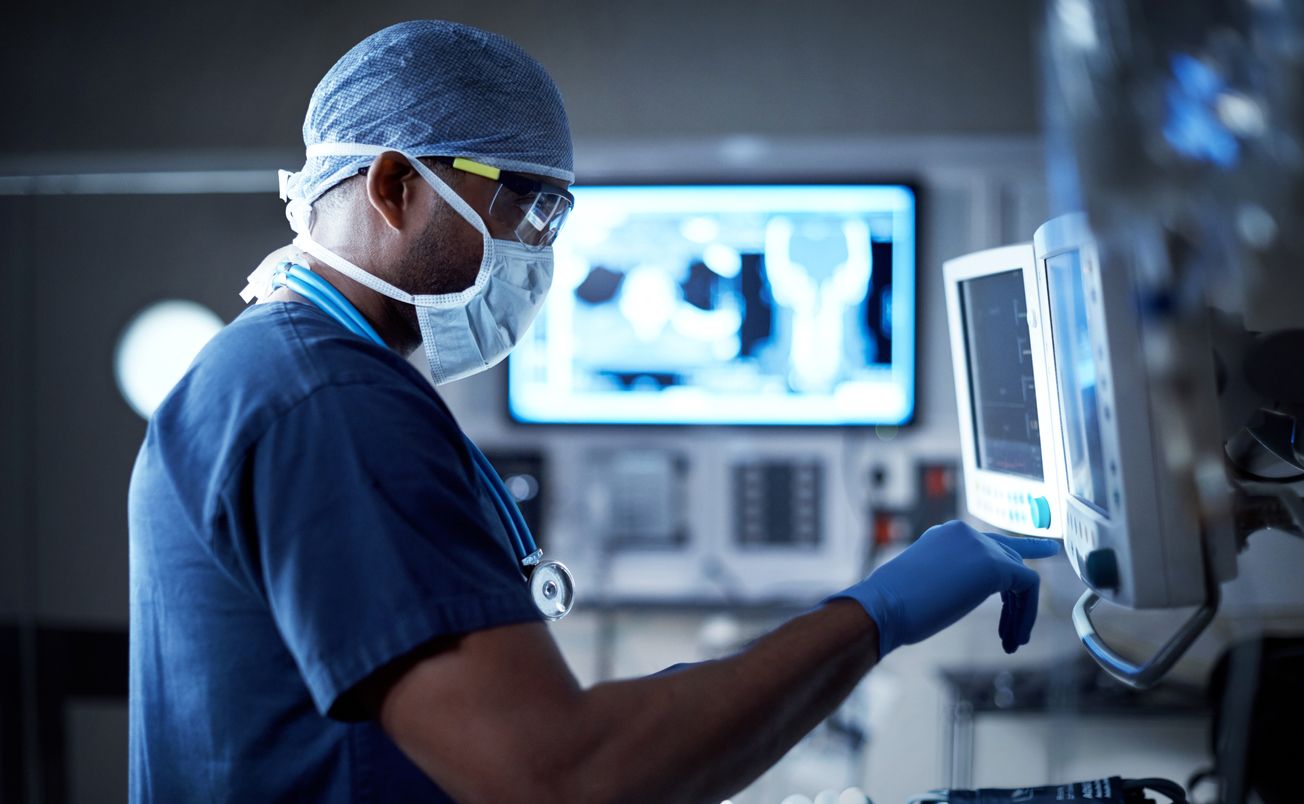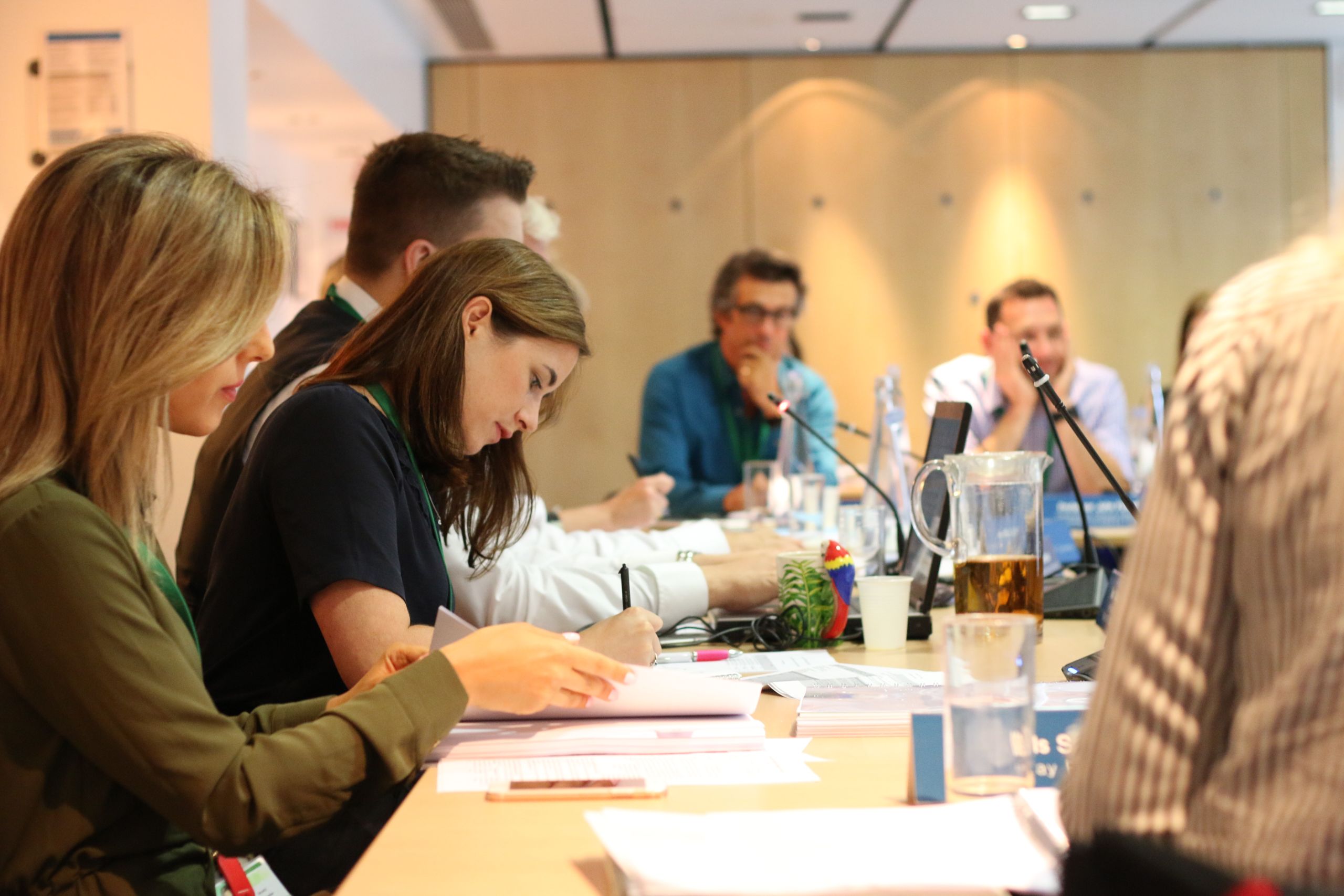Giving something back
Our Centre for Health Technology Evaluation develops guidance on the use of new and existing treatments. But what's it like being a health technology assessment adviser here at NICE? Ellie Donegan tells all.


Tell us a bit about yourself.
Hi, my name’s Ellie Donegan and I’m a health technology assessment adviser at NICE. I’m 47 and a homeworker. I’ve got 3 children, Daniel (13), James (11) and Isla (6). I enjoy knitting and going to church. I’ve also recently started to have piano lessons again – an instrument I last played when I was 7 years old! As a family, though, our favourite activity is going on adventures in our campervan.

When did you join NICE?
I joined in September 2002. So I’ve been here a while now!
Describe your career journey so far.
Well, I did a degree in experimental pathology at the University of St Andrews. After that I started a PhD at the University of Dundee and ended up stopping it at an MSc. Then I went to do research at the University of Dundee and then for a company which makes in vitro diagnostic devices. In 2000, I got a job at the Medicines and Healthcare products Regulatory Agency as a regulatory affairs specialist. I used to give advice on the European Medical Devices Directives and clinical trials of medical devices. I enjoyed that for a couple of years, but I wanted a role that was a bit more technical. So I applied to come and work here.
What does a health technology assessment adviser do?
I work in the appraisals team. We’re the team that’ll look at a new drug or treatment for a particular disease and see whether it works better than what the NHS currently uses. We also look at whether it’s good value for money. I work with a technical analyst on these topics, which at NICE we call technology appraisals. We produce technical briefing documents to give to a committee. These documents summarise the evidence around the drug or treatment, including information submitted by the company, independent academic group and clinical and patient experts. After the committee considers this evidence it makes a decision on whether a particular technology should be used in the NHS.
I work with a technical analyst to write the briefing documents. It’s a very collaborative process. We both read all the same information and then work to summarise it as effectively as possible. The analyst does this first, then sends their draft report to me. My role as adviser is to make sure all the key information is included. And, most importantly, to see and show where there are any gaps in the evidence we have. We also have to set out what key issues the committee has to decide on. I’ll review the report from the technical analyst, edit it and make comments or suggest amendments. My role is to make sure that the documents that go to the committee are of the highest quality.
What do you enjoy most about your role?
That it’s really interesting! I’ve got hip dysplasia and when I was young I had a lot of operations for that. I’d hated biology at school. But when I was going through all those operations I thought ‘I know the surgeon’s done their work, but my body’s now essentially healing itself, and that’s really clever’. I became really interested in how the body works. I find my role really intellectually stimulating because we’re always learning something new. My favourite area, though, is definitely devices. I used to work in a company that made blood testing kits, I think that’s where it started. So if there are ever any appraisals that pop up about devices I always ask to work on those!

What was it that made you want to work with us?
I was diagnosed with developmental hip dysplasia at the age of 16 and couldn’t walk without sticks. The orthopaedic consultants at that time in Manchester told me I’d end up in a wheelchair and said there was nothing they could do. I was told I was too young for hip replacements. When I was at university in Scotland, the hip pain was unmanageable. I was referred to a fantastic surgeon (Mr Buxton, who I still correspond with at Christmas). He said there were some new operations not currently available in the UK that he’d seen performed in America that we could try if I wanted. And of course I said yes! These operations were to break my femurs and pelvis and so give me deeper hip sockets. I’ve had lots of operations on the NHS, including 2 hip replacements, but I can walk and I’ve never been in a wheelchair. I’ve been really lucky. I cannot begin to explain how the surgery has improved my life. I am so grateful and I want to give something back to the NHS. That’s why I wanted to work for NICE.
How has NICE supported you in achieving your goals?
Well, my goal was to work for NICE, really, so I didn’t think much beyond that! But it is a very good employer. I’ve been able to progress in my career – I started as a technical analyst and now I’m an adviser. And the ability to work flexibly has really helped me. When I had children I applied to work part time, which NICE granted. As your life circumstances change, the organisation will consider different flexible working arrangements to support you. For example, when I had my third child, I was supported to become a home worker. So NICE hasn’t just helped me progress in my professional career, it’s also supported me as a whole person.
What’s it like being a homeworker at NICE?
I used to commute to the London office from Oxfordshire. Then I had my third child at 41 and I thought: ‘I can’t do this anymore!’ It was a 6 hour commute and it was just too much. So I talked to my manager and applied to become a home worker. I’ve been working from home for about 6 or 7 years now. I do like coming into the office now and then for meetings, which I enjoy as I like the people I work with. So in a way I do miss being in the office regularly. But being a home worker really works for my family. People working from home can feel isolated, but I don’t because I pick up the phone a lot. Partly because I’ve been working in a team with other homeworkers! And I get a lot more work done at home. It really works for me.
What do you think is the biggest perk of working for NICE?
Definitely the flexible working. There aren’t many careers where you can adapt the way you work when your circumstances change (for example, when you have a family). And there aren’t that many technical jobs in biology or science where you can have a career break to have children. Or where you can can come back and work part time. It’s really good. NICE is the most supportive employer I’ve worked for.
Describe the culture of NICE in 3 words.
Friendly, supportive and evolving. Things are always changing because we’re continually working to improve the way we do things. We review our methods and our processes every 3 years. We’re always adapting to what’s coming round the corner!
Want to know more?
You can learn more about Ellie's colleagues below.
- Fiona Glen - meet the manager (video)
- Fiona Glen - the trouble with turtles
- Olivia Crane - (not) lost in translation
- Olivia Crane - getting technical (video).
Interested in working with us?
Keep an eye on our vacancies on our website.
